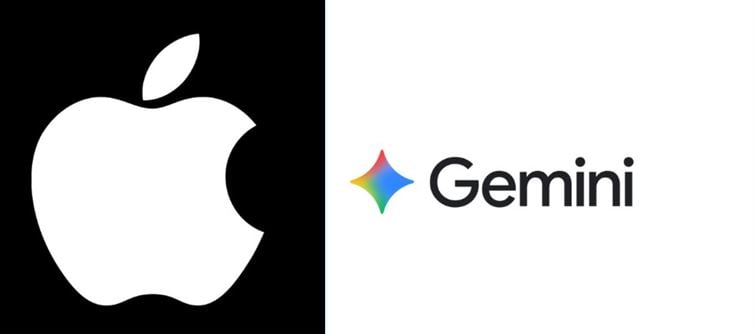
🏁 When the master Becomes the User
apple built its empire on the idea of control: controlling hardware, controlling software, controlling the experience.
So why, now, is the world’s most secretive tech giant in talks to hand over the brain of its flagship assistant—Siri—to the very company it has long battled: Google?
When we hear that siri may soon run on Google’s gemini, it’s not just a tech upgrade. It’s a signal: the boundary between rival tech empires is dissolving.
Here’s why it matters—and why you should care.
🧠 Apple’s AI Problem: Falling Way Behind
siri has, for years, lagged. While rivals like google Assistant and amazon Alexa became smarter, more conversational, and more useful, siri stayed the same.
Delays, internal shake-ups, talent departures—Apple’s AI ambitions hit roadblocks. The company even explored multiple pathways—its own large-language models (LLMs) and external partnerships.
When you’re the company that brought the world the iPhone, falling behind on assistants is more than embarrassing—it’s a strategic risk.
🔄 The gemini Deal: Outsourcing the Brain
Recent credible reports say apple is in early discussions with google to integrate gemini into a future version of Siri.
Google is reportedly training a model to run on Apple’s servers. gemini isn’t just “a smart chatbot”—it’s multimodal, cloud-scale, and advanced.
If this goes through, apple will license technology from its fiercest competitor to power a core part of its own ecosystem. That’s huge.
It speaks to desperation: when in-house innovation isn’t enough, you bring in the rival.
💰 The Money Behind the Scenes
Let’s talk dollars. apple already takes billions from google annually (due to default search engine deals).
Now, imagine adding a licensing/royalty deal for gemini technology.
For google, this is gold—a new revenue stream, deeper embed into Apple’s ecosystem. For apple, it may cut costs or speed deployment—but it also signals dependency.
Analysts view this as a pivot away from self-reliance to a partner-first strategy.
🔒 Privacy vs. Power: The Trade-Off
apple has long marketed itself as the privacy-first company.
But when you integrate a third-party AI model—even behind your own servers—the questions stack up: how much data gets shared, processed, stored?
Reports say apple is still deciding whether gemini will run on-device or via Apple’s private cloud.
For users: the assistant you use every day might be powered by someone else’s tech. Do you trust your rival to respect your data?
🤝 The Irony: Rivalry Becomes Collaboration
apple and google have been rivals for decades—so this move is deeply ironic.
To tap Google’s tech is to admit you couldn’t quite do it alone.
But maybe, for apple, survival in the AI era demands compromise. They face regulatory pressure, talent exodus, global competition — maybe they’re saying: “Okay, we’ll play nice for now.”
It’s a big bet. If it fails, the “Apple can’t innovate anymore” narrative will only grow louder.
🔮 What It Means for the Future
For users: siri might get smarter, more helpful, and finally competitive. Sounds good—unless you care about privacy, control, or ecosystem independence.
For Apple’s business: If this works, apple might ironically become a platform for someone else’s brain. What happens to Apple’s identity then?
For the tech industry: The lines blur. The great AI arms race might end in deals, not competition.
For regulators: This kind of deal might raise antitrust eyebrows—two tech titans supposedly rivals suddenly sharing key tech… that will raise questions.
🚩 Final Word: When the Genius Hires the Genius
If apple uses gemini to power Siri, it’s not failure—it’s evolution. But there’s a catch.
They’ve handed some of their magic wand to the competition.
It might give you a smarter assistant today—but at the cost of a future where apple stands alone.
So before you cheer “Siri just got better,” ask: who’s really behind the voice?




 click and follow Indiaherald WhatsApp channel
click and follow Indiaherald WhatsApp channel